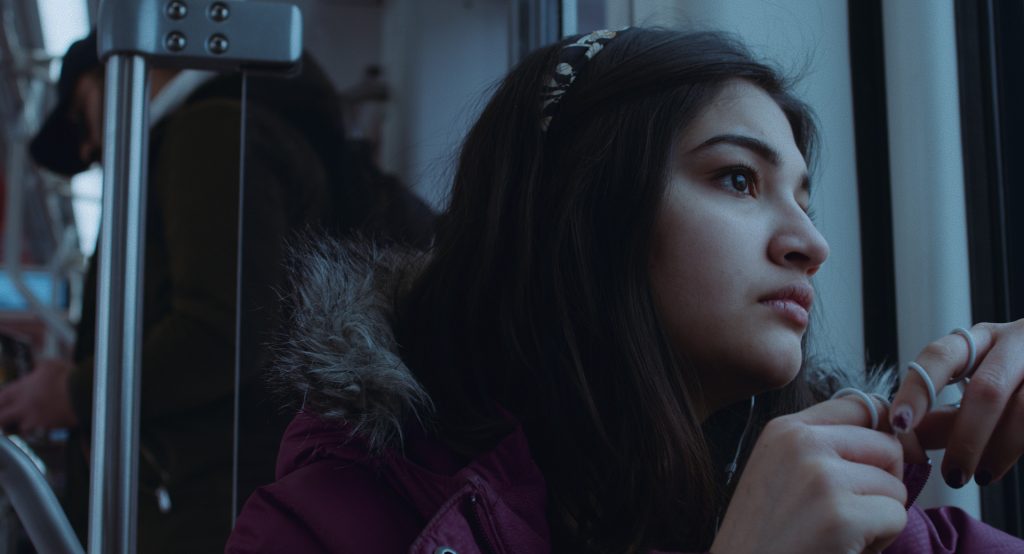
Spill the Chai: The Breadwinner’s Burden
By Aymen Sherwani, December 4, 2020—
It seems like so long ago since the province was plunged into the depths of an economic recession in 2016, due to it’s notoriously — and quite frankly disappointingly — heavy dependence on the oil sector.
Sometimes thinking about all the angry jobless conservatives blaming refugees and immigrants for stealing their jobs makes me feel a little nostalgic. At least this time around they’re blaming a pandemic they don’t believe exists. But for many students back then who dedicated most of their lives, and thousands of dollars, towards a career that is slowly becoming obsolete, both the job markets and their immediate futures seemed pretty bleak. For many immigrant students — especially men — whose families are well versed in what struggle sounds like, life couldn’t be worse. It sounds like being guilted into pursuing a career you don’t even like, just so your parents are proud of you, and your father no longer works long hours to put food on the table. It sounds like rejection letters and settling for less just to make ends meet. It’s the learned toxic masculinity that grooms you into believing you’re less of a man and less deserving of respect unless you contribute to your family.
Amair and Omar Javaid, the dynamic actor-director-brother duo behind the film Hafiz, and now their upcoming film Charsi, intend to shed light on this issue in particular through the work they’ve created. The Javaid Brothers’ Charsi will set the stage in the heart of the 2016 economic recession, right at the time when marijuana was being legalized in Canada, and Uber was ushering out already overworked taxi drivers across the margins of joblessness. It will explore the story of Usman, a recent university graduate played by Omar, as he struggles with the pressure from his parents to get an engineering job in the oil sector, while his father simultaneously struggles financially as a taxi driver, whose business is slowly being overrun by Uber.
In an interview with The Gauntlet, Amair, writer and director, says “the title for the film, Charsi, directly translates to “junkie” in Urdu. Weed is introduced as a gateway — no pun intended — into the social struggles kids go through here in the South Asian diaspora, especially when it comes to escapism in the face of maintaining the balance between two drastically different lifestyles of the east and the west.”
While the film focuses on the life of your average 20-something Pakistani male with an engineering degree, it also sheds light on just how parasitic and self-destructive the model minority myth is within the South Asian community. Amair says, “South Asians are disproportionately affected by recessions, especially on a mental level, because a lot of their struggles are economic. They arrive poor, they live poor and they build up from there. Sometimes they leave their home country because of financial troubles, so people get worried really fast during a recession about whether the life they’re building is going to come crashing down.”
The older generation of the South Asian diaspora prescribes to the notion that your sole purpose in life is to provide for your stay-at-home wife, and to make enough money to put your children through school so that one day they may support you in your old age. Eastern family dynamics place more of an emphasis on one’s role within the family, rather than individual freedom, so younger South Asian men are groomed by their families to also prescribe to this same notion, and are raised in a way that predetermines their career path.

Omar adds that “Charsi is a film that’s sort of about questioning whether he even wants to pursue what he’s pursuing, or if he’s only doing it because he’s guaranteed a job. He’s sort of just getting pushed along, which I feel like a lot of other people go through. A lot of people who I’ve spoken to in “the big three” careers (medicine, law and engineering) are usually in them because that’s what their parents want for them, and not much else besides a general interest in the field.”
Many South Asian households are designed to prioritize stability over passion and in the process countless artists-at-heart wonder every day why they’re in a cubicle, working a passionless 9-to-5 job at an oil company. The fact that most men have premised their entire worth on making money is what’s the problem here because when the tides turn, the problems begin to arise. This community struggles with continuously prioritizing working jobs we don’t enjoy, to impress people we don’t like, only to lose them one day, and realize we spent so much time at work we don’t even recognize our own family members anymore, let alone ourselves. According to Amair, Charsi also takes a dive into the unfortunate reality of toxic masculinity rearing its ugly head in the South Asian community, his goal being “to portray South Asian family life authentically, especially in times of hardship. It turned out that this is really where the issues of toxic masculinity and patriarchy come to shine, as men become increasingly insecure as a result of economic pressure.”
When men are groomed to be the “breadwinners” of the family their entire life, oftentimes it becomes their entire identity. When an issue like economic hardship compromises this part of their identity, it leads a lot of men to take out their frustrations on their families, physically and verbally. Families, as dependants of the breadwinner are meant to feel shame for having to rely on them during times of economic hardship, not because our culture believes it’s wrong to do so, but because it is a projection of the breadwinner’s own shame, for failing to fulfill his purpose as a provider. Amair adds, “in a time where families need both parents to work, one parent needlessly takes the entire burden and, metaphorically, digs their own grave, taking their partner and children down with them through financial guilt and making them feel as though their existence is a burden.”
That internal clash within the minds of second-generation immigrants, about whether to choose a life of individual freedom, or have your life chosen for you, is the ultimate unanswered question. We don’t know how to blindly follow the paths our parents want for us, in fear we’ll resent them for the rest of our lives. We don’t know how to choose a life of personal happiness and freedom, because of the lingering implication that we have let our families down, or even abandoned them. There’s no right answer here, because at the end of the day, something will hurt. For this, Amair says that “sometimes I feel like our generation is like a bridge generation, and it feels like there’s a certain amount we just have to suffer. Our parents prospered back home, and our kids are going to do great too, but we in the middle have to bridge these generations. Transitions hurt and it’s a pain we have to endure. It always feels like we have to outdo everyone else, and I don’t know why but that carries a lot of value.”
The Javaid Brothers will be representing countless “bridge” generation immigrants, and bringing their story to life through Charsi for a December screening that has yet to be announced. They have also been nominated for three Stinger Awards for Best Performance, Best Score and Best Overall Sound. The Gauntlet wishes them the best of luck, and will always stand in the support of up-and-coming filmmakers.
Spill the Chai is a weekly column that seeks to showcase the talents and achievements of the South Asian and Middle Eastern communities at the University of Calgary campus, but also “spills the chai” on the issues they face on a daily basis, by speaking power into the narratives of the many students of colour on campus. This column is a part of our Voices section.
